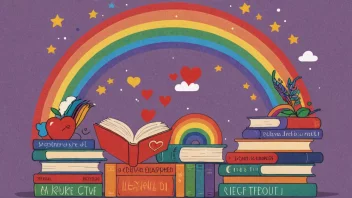Classic literature often serves as a mirror reflecting the complexities of human existence, and one of its most poignant themes is redemption. The concept of redemption is woven through the narratives of countless literary works, inviting readers to explore the transformative power of forgiveness, moral evolution, and the quest for atonement. From the anguished cries of characters seeking absolution to the subtle hints of hope permeating their journeys, classic literature provides an extensive landscape for examining this timeless theme. In this article, we will delve into notable examples of redemption in classic literature, uncovering the intricate layers that define this powerful motif.
The Nature of Redemption in Classic Literature
Redemption can be understood as the act of regaining or gaining something through effort, often associated with forgiveness and the resolution of guilt. In classic literature, this theme often manifests through characters who grapple with their past mistakes and seek to reconcile their actions with their moral compass. The journey toward redemption is frequently fraught with challenges, forcing characters to confront their inner demons and societal judgments. The exploration of redemption not only serves to enhance character development but also invites readers to reflect on their own lives and the possibility of forgiveness.
Notable Works Exploring Redemption
Several classic literary works highlight the theme of redemption through their narratives and characters. Here are a few significant examples:
- Les Misérables by Victor Hugo: This monumental novel follows the life of Jean Valjean, a man imprisoned for stealing bread to feed his family. After receiving an act of mercy from a bishop, Valjean embarks on a journey of redemption, transforming himself from a hardened criminal into a compassionate benefactor. His struggle to escape his past while striving to lead a virtuous life encapsulates the theme of redemption in its most profound form.
- A Christmas Carol by Charles Dickens: Perhaps one of the most famous stories of redemption, this novella tells the tale of Ebenezer Scrooge, a miserly old man visited by three spirits who reveal the impact of his selfishness. Through this supernatural journey, Scrooge confronts his past, acknowledges his wrongdoings, and ultimately embraces the spirit of Christmas, embodying the transformative power of redemption.
- The Scarlet Letter by Nathaniel Hawthorne: Set in a Puritan society, the story revolves around Hester Prynne, who commits adultery and is shunned by her community. Hester's journey toward self-acceptance and her effort to raise her daughter in the face of societal condemnation serve as a poignant exploration of personal redemption and the struggle against societal judgment.
- Crime and Punishment by Fyodor Dostoevsky: This novel delves into the psychology of Raskolnikov, a former student who commits murder to prove his superiority. Throughout the story, he grapples with guilt and paranoia, ultimately seeking redemption through suffering and moral awakening. Dostoevsky’s work highlights the intricate relationship between crime, punishment, and the quest for forgiveness.
Redemption as a Catalyst for Character Development
In many classic novels, the theme of redemption acts as a catalyst for character development. Characters often undergo significant transformations as they navigate their moral dilemmas, leading to profound insights and personal growth. For instance, in Les Misérables, Valjean’s evolution from a bitter ex-convict to a selfless protector illustrates how the desire for redemption can lead to positive change. Similarly, in A Christmas Carol, Scrooge’s metamorphosis from a selfish miser to a generous benefactor demonstrates that redemption is attainable, even for the most hardened hearts.
The Role of Forgiveness in Redemption
Forgiveness plays a crucial role in the journey toward redemption, both for the characters seeking it and for those they have wronged. In The Scarlet Letter, Hester's ability to forgive herself and seek a path forward is essential to her redemption. The dynamic between forgiveness and redemption is complex; it often requires characters to confront their actions, seek forgiveness from others, and ultimately forgive themselves.
The Impact of Redemption on Readers
The exploration of redemption in classic literature resonates with readers on a personal level, offering insights into their own lives. These narratives invite readers to reflect on their own mistakes, the power of forgiveness, and the possibility of change. The theme of redemption serves as a reminder that everyone is capable of growth and transformation, regardless of their past. As readers engage with these stories, they are encouraged to consider their own journeys toward redemption, fostering a deeper understanding of humanity.
Conclusion
Classic literature's exploration of the theme of redemption is a testament to the enduring power of storytelling. Through the journeys of flawed characters seeking forgiveness and moral reconciliation, readers are offered profound insights into the complexities of human nature. Whether through the transformative journeys of Valjean, Scrooge, or Raskolnikov, these narratives not only highlight the potential for redemption but also encourage readers to embrace their own paths toward atonement. In a world that often feels divided and unforgiving, the timeless theme of redemption remains a beacon of hope, reminding us that change is not only possible but also essential to the human experience.






